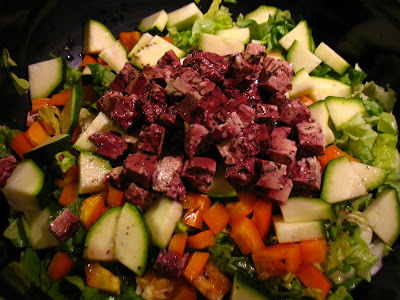Whether you are traveling domestically or internationally, the key to successful vegan travel is planning ahead. Recently I spoke with two travel agents who shared helpful suggestions for how vegans can prepare for a trip and manage hurdles along the way.
Lisa Foster, owner of Boring, OR-based LT Travel, and Donna Zeigfinger, owner of Green Earth Travel, based in Cabin John, MD, recently shared helpful suggestions for vegans planning a domestic or international trip.
The two travel experts say that putting in the time to research your destination before you leave will make all the difference.
Snacks are essential: Zeigfinger says to bring a sandwich, nuts, dried berries, and yes, even chips. It is better to purchase these items ahead of time when you have control of the selection. But she warns to be careful with fresh fruits and vegetables that may go bad or not be allowed depending on where you are traveling.
If you are flying to your destination, “contact your travel agent or the airline to establish if a meal will be served,” Foster says. Most flights under four hours don’t include a meal but allow you to bring certain food items on board. But keep in mind that airlines are becoming more strict regarding the weight of bags, both checked and carry on.
Most overseas flights do serve meals and the airport code VGML (strict vegetarian) is appropriate for vegans. Zeigfinger also says to reconfirm your meal status 24 hours before the flight to ensure that your meal will be on board.
Foster recommends bringing an icepack and lunch sack if you do have perishable items. No liquids over 3 oz are allowed through airport security. However, you can bring an empty water bottle – 12 oz or better – and fill it up once you clear the check point.
Zeigfinger says, “Recommendations are the best.” Contact local vegetarian societies, buy travel guides, go to websites to learn about the country, see what their cultures are and how they eat.
You can get a free vegan language guide here.
After you make your hotel reservations, contact the chef or concierge and tell them what you can and cannot eat. Ask if they know of a vegan restaurant near the hotel, or a health food store that offers vegan options.
Foster says, “Make a list of where you can shop and eat at your destination.” Do your research before you leave to save yourself time and discomfort when you arrive. “Not everyone knows what it means to be a vegan,” she adds. Communicating your dietary needs can be tough, so she suggests buying a Vegan Passport. It identifies in 73 different languages what a vegan can and cannot eat. This makes ordering food at a restaurant very easy because the Vegan Passport also asks politely if the restaurant can accommodate a vegan diner.
Both experts say that in big cities, vegans will not have as many issues. But, in smaller cities, Zeigfinger suggest sticking with side dishes, salads, and fruits.
“It should really not be a problem,” Zeigfinger says. She also recommends two websites that will help you locate restaurants in cities where you are staying: http://www.happycow.org/ and http://www.vegdining.com/.
“Food should never keep someone from traveling,” Zeigfinger says. “It is only fuel to get us there and to keep us going. In the techno days we have now it is so much easier to eat and travel as a vegan.”
















































